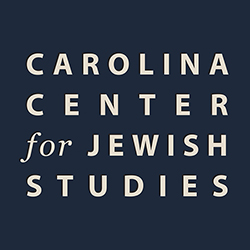Areas of Scholarship and Teaching
| American Jewish Studies
American Jewish Studies investigates the experiences, the expressions, the conflicts, and the compromises that shape the lives of Jews in America. How do America’s religious, cultural, social, economic, and political landscapes intersect to produce and reproduce Jewish identities and communities today? Studies in this area consider the diverse histories, practices, and worldviews of American Jews to understand how notions of gender, race, class, region, and religion in America are affected by interactions with both Jews and non-Jews from across the globe. We rely upon historical research, fieldwork and oral history, textual analysis, and material culture study to learn about topics ranging from the daily factory life of 19th century Russian Jewish immigrants on the Lower East Side of New York City, to the meaning behind the smorgasbord at a contemporary Bat Mitzvah in Dallas, Texas, to the relationships between Evangelical Christians and Jews. |
|||
| Folklore and Expressive Cultures
Jewish Expressive Cultures examines historic and contemporary expressions of Jewish cultural traditions, material culture, and creative practice. In this subject area, our faculty and students study Jewish foodways, storytelling/narrative, dress and body adornment, ritual lifecycle events, religious customs, music, dance, art, architecture, and belief systems, among other forms of creative expression in everyday life. We approach these expressions as performances that mediate between individual and collective histories, and current circumstances, illustrating innovation within traditional practice over time. This interdisciplinary field draws upon literatures and theories from such disciplines as folklore studies, food studies, ethnomusicology, gender studies, material culture studies, performance studies, history, anthropology, and sociology. Our methodologies include ethnography, oral history, archival research, discourse analysis, and performance studies. |
|||
| German and Yiddish Studies
Yiddish and German-Jewish studies at UNC encompass literature and culture produced by, about, and/or for Jews in Europe from the Middle Ages to the twenty-first century.Yiddish, the language spoken and written by Ashkenazic Jews, has a long and rich tradition dating back to the Middle Ages. The common basis of the language is stressed in all of the various names for Yiddish that were current until the early twentieth century. During this time period, Yiddish was referred to among Jews as “Yudish Taytsh” (Jewish German). Yiddish literature conveys the long story of the interaction between different cultures and languages including Hebrew, German, and Polish and other Slavic languages. In the first half of the nineteenth century Jews living in German-speaking Europe began to adopt German as a language of everyday life. From the late eighteenth century until the Holocaust, German Jews produced a huge corpus of literature and theological and philosophical writings in German, playing a major role in German literature, culture, and theatre. In the postwar period as well, there has been considerable interest in both German-Jewish and Yiddish literature and culture in the German-speaking world as well. |
|||
| Israel Studies
Israel Studies is a rapidly growing field of scholarship in America and beyond. The classes UNC faculty at the Center for Jewish Studies at UNC-Chapel Hill offer explore Israeli literature, music, cinema, and the study of the Hebrew language. Thematically, these classes link Israel Studies to Jewish-European Studies, Sephardi/Mizrahi Studies, and Middle Eastern Studies. In addition, Israeli Studies faculty have been inviting distinguished Israeli authors, filmmakers, and musicians to share and discuss their works with the UNC community and the public at large. |
|||
| Latin American Jewish Studies
Latin American Jewish Studies research interests lie in the literary and cultural production of Jews living in Latin America, and writing in Yiddish and in Spanish. |
|||
| Music
At UNC, Jewish music has the rare distinction of being a focus of both scholarly inquiry and artistic practice. Particular areas of strength include Israeli popular music, art song by Jewish composers, and Jewish choral music. Our scholars and performers explore Jewish music throughout history, and across the sacred/secular spectrum in traditions from the Middle East and North Africa, Central and Eastern Europe, Central and South Asia, and the United States. There is considerable methodological overlap among faculty where music intersects with other fields of cultural expression, such as literature and drama, and we are deeply invested in the intellectual history of Jewish music as an academic subject. |
|||
| Sephardic and Mizrahi Studies
Jewish Studies faculty at the Center for Jewish Studies offer a variety of classes on the history, immigration, and socio-cultural features pertaining to Sephardi and Mizrahi communities in the Middle East, North Africa, Europe, and beyond. Yaron Shemer’s class “Arab-Jews: Culture, Community, and Co-existence” (ASIA 357/JWST 357) explores Jewish life in Arab lands in the last century by examining the cultural production of literature, music, and cinema, the communal life the Arab-Jews shared with their neighbors of other faiths, and the language landscapes. |
|||
| Southern U.S. Jewish Studies
For over five centuries, a racially and ethnically diverse people who we recognize as ‘southerners’ [including Jewish settlers who arrived in the early South] have struggled over the control of bodies and minds, access to material and economic resources, and, since the founding of the United States, the rights of citizenship. Southern Jewish Studies includes scholarship on the histories and cultures of Jewish people in this dynamic and contested South, as well as their interactions with non-Jewish groups, individuals and institutions in the region and relationships to national and transnational Jewish communities and events. Courses on the Jewish South explore these complex experiences and the “braided identity” of Jews in the region—their relationships with non-Jewish southerners and non-southern Jews, their loyalty to and unease with the South as a region, and their embrace of and distance from southern cultures.
Additional Areas of Research Early Judaism / Hebrew Bible Eastern Europe Holocaust Studies Jewish-Christian Relations Medieval / Early Modern |
